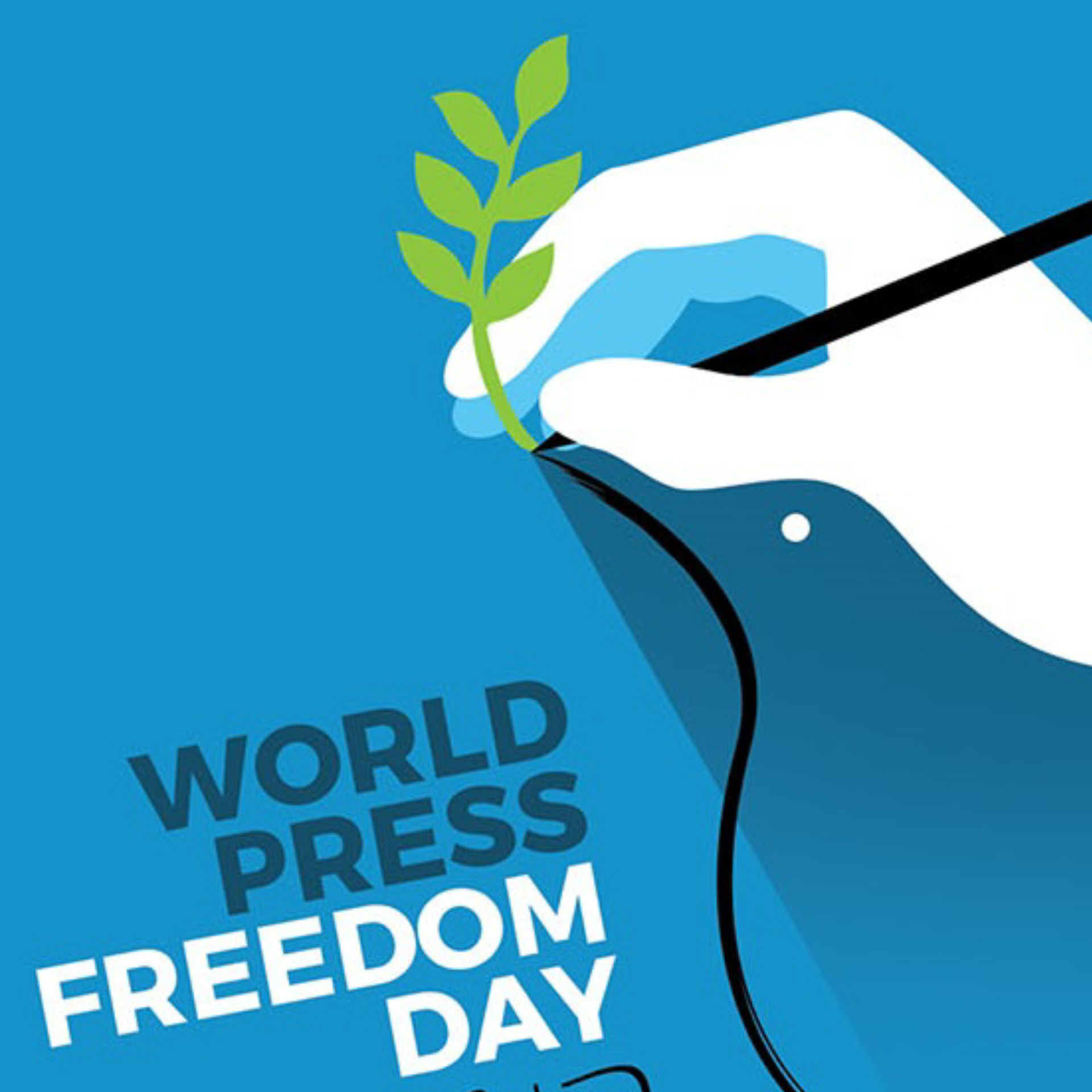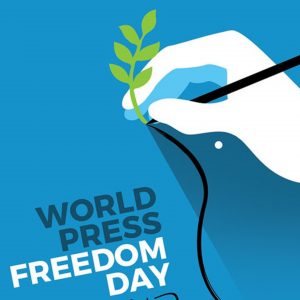World Press Freedom Day
The UNESCO conference in 1991, described as the Windhoek declaration is a catalyst in the process of encouraging press freedom, independence and pluralism in Africa, and the UNESCO promptly resolved to extend such declaration to other regions of the world.
The statement produced at a UNESCO seminar, titled “Promoting an Independent and Pluralistic African Press” was held in Windhoek, the capital of Namibia from April 29 to May 3,1991.The date of the declaration ‘s adoption, May 3, has subsequently been declared as World Press Freedom Day.
After thirty (30) years, the historic connection made between the freedom to seek, impart and receive information, and the public good remains as relevant as it was at the time of its signing. May 3 acts as a reminder to governments on the need to respect their commitment to press freedom. It is also a day of reflection among media professionals about issues of press freedom and professional ethics. It is an opportunity to celebrate the fundamental principles of press freedom; access the state of press freedom all over the world; defend the media from attacks on their independence; and pay tribute to Journalists who have lost their lives in the line of duty.
The theme for WPFD 2024 is “A press for the planet: Journalism in the face of environmental crisis”. The thirty-first (31) edition of WPFD highlights the significant role played by journalism in access and dissemination of information to ensure and secure a sustainable future that respects the rights of individuals and diversity of voices as well as gender equality.
The 2024 WPFD is dedicated to importance of journalism and freedom of expression in the context of the current global environmental crisis. It aim to highlight the significant role that the press, journalism,access and dissemination of information play to ensure and secure a sustainable future that respects the rights of individuals and their diversity of voices as well as gender equality.
Awareness of all aspects of the global environmental crisis and its consequences is essential in building democratic societies.
Journalistic work is indispensable for this purpose, along with the recognition of various primary sources of information required for comprehensive,accurate, and historical grounded reporting. Journalists encounter significant challenges in seeking and disseminating information on contemporary issues, such as supply-chains problems, climate, migration,extractive industries, illegal mining, pollution, poaching,animal trafficking,deforestation/ climate change. Ensuring the visibility of these issues is crucial for promoting peace and democratic values globally.
The various threats (physically,economic, political, psychological, digital and legal) to which journalists are subjected reflect a complex context in which there is a constant struggle for information control. Journalists and communicators covering environmental issues face many threats and forms of violence due to the sensitive nature of their reporting.These range from physical violence, surveillance, pressureor intimidation by national and trans national companies that could be affected by their activities, to the imposition of official controls and the pernicious use of the state apparatus (administrative/judicial) as well as filters and content moderation to restrict access to information.
The shared objectives by all perpetrators of threats and forms of violence against objectivity in reportage is to prevent the public’s access to critical information and limit people’s ability to make informed decisions for their communities and well-being.
Women Journalists often face particular challenges and risks in carrying out their tasks.In addition to cases of sexual harassment, gender based discrimination, threats with sexist and misogynistic connotation, they may also be subjected to various forms of gender based discrimination in association with their journalistic investigations.
There are conventions and instruments that justifies the importance of public access to information as a key element to empower citizens to engage in climate action and to highlight the foundamental role of journalists in presenting scientific findings, etc. These include the UN Framework Convention on Climate Change (1992); the Aarhus Convention (1998); the Paris Agreement (2015) and the Escazu Agreement (2018). The Escazu Agreement focuses in Latin America and the Caribbean, the Aarhus Convention consists of three pillars, providing for three different rights: first, the right to receive environmental information that is held by public authorities; second, the right to participate in environmental decision making; and third,access to justice. The UN(1992) and Paris(2015) conventions appreciates the importance of public access to information as a key element to empower citizens to engage in climate action.
World Press Freedom Day,2024 is an important opportunity for the international community to collectively reflect on these multi- dimensional challenges, the fundamental role of journalism and the transformative power that reliable information has to protect our planet, achieve sustainable development and consolidate democracies.
This august commemoration of World Press Freedom Day will definitely serve as a platform to:
(i) Assess and discuss the situation of the right to press freedom globally, identifying areas where Journalists face repression, violence and censorship.
(ii) Establish and strengthen ties between different actors, such as media organizations,NGOs, government and international bodies to work together to promote and protect the right to press freedom.
(iii) Reaffirm our commitments to freedom of expression and press freedom as human rights enshrined in various international instruments, recognizing their importance for the strengthening of democratic societies. (iv) Call for the importance of reliable and accurate information, especially,that which denounces and investigate the environmental crisis and its effect.
(v)Raise awareness in the urgency to defend the media from attacks on their independence,freedom and pluralism, and recall the Windhoek declaration as a common good.
(vi) Recall the Santiago declaration, which stresses the importance of respecting media pluralism and cultural,linguistics, and gender diversity as a fundamental factors of a democratic societies and which should be reflected in all media.
(vii)Pay tributes to journalists who have lost their lives and those who fought for their freedoms in the line of duty.
(viii)Raise awareness about the violence faced by journalist and communication workers when promoting sustainable development and environmental protection, encouraginga gender responsive perspective that promotes non-sexist journalistic discuss.
(ix)Promote professional journalism that discuss the eradication of all types of discrimination and biases against women.
(x)Accelerate people’s media and information literacy to foster critical and informed thinking skills as the main tool to problem of misinformation/disinformation and its effect on our democracies.
As we celebrate WPFD 2024, it is our conviction that there is a dire need for promotion of stronger policies as well as national and international cooperation and engagement in support of memory institutions as custodians of primary sources of environmental information for journalistic practice. This is inevitable, infact, unavailable.
Gbemiga Bamidele, Ph.D is the Convener, Society for Journalism
Enhancement Initiatives (S4JEI).
Email:gbemigabamidele@gmail.com
Tel : 08122335570, 08053000100, Whatsapp: 08033237973.


